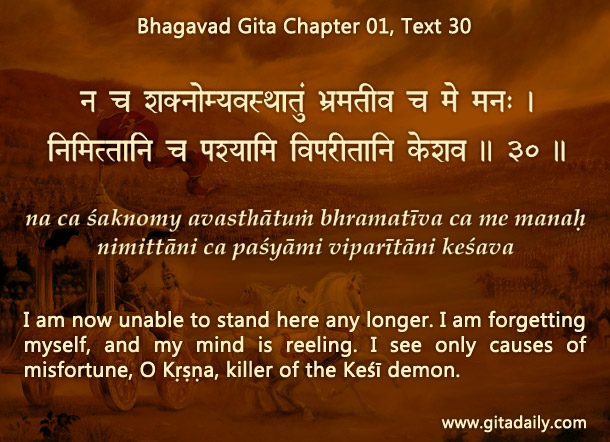When our inner map fails – Suppose we are driving on an important journey using a digital map, but suddenly our map stops working. That will leave us disoriented.
We all have an inner map that guides us during our life-journey. Even if we haven’t consciously contemplated the existence of such a map, it subconsciously shapes our choices. That map comprises the values that characterize us and the purposes that motivate us. Suppose we are presented with an opportunity to invest in a project that promises large returns but also involves huge risks. If we value adventure more than security, the investment choice gets lit green on our inner map; otherwise, it gets the red light.
But sometimes life brings us to dilemmas where the inner map lights for both choices. Suppose a judge values both their family and their job; and they have to adjudicate a case where their son is charged with a crime and they have no option of recusing themselves.
Such was the dilemma facing Arjuna in the Bhagavad-gita’s first chapter. He was torn between his duty to dynasty (kula-dharma) and duty to society (kshatriya-dharma): should he protect his relatives even when they were aggressors or should he protect society from those aggressors? Being unable to decide, he felt overwhelmed (01.30).
Instead of taking such disorientation as a personal failure of our character or strength, we can treat it as a functional failure of our map. Then those disorienting experiences can become opportunities to increase the alignment of our inner maps with reality. The Bhagavad-gita is a time-honored guidebook that explains the many levels of reality, thus equipping us to revise and refine our inner maps.
One-sentence summary:
See disorienting experiences not as personal failures but as functional failures of our inner map — and seek wisdom to improve that map.
Think it over:
- How did Arjuna’s inner map fail him?
- What are healthy and unhealthy attitudes toward our disorienting experiences?
- Has your inner map ever failed you? How can Gita wisdom help you expand your map?
***
01.30: I am now unable to stand here any longer. I am forgetting myself, and my mind is reeling. I see only causes of misfortune, O Krishna, killer of the Keshi demon.
To know more about this verse, please click on the image


Leave A Comment